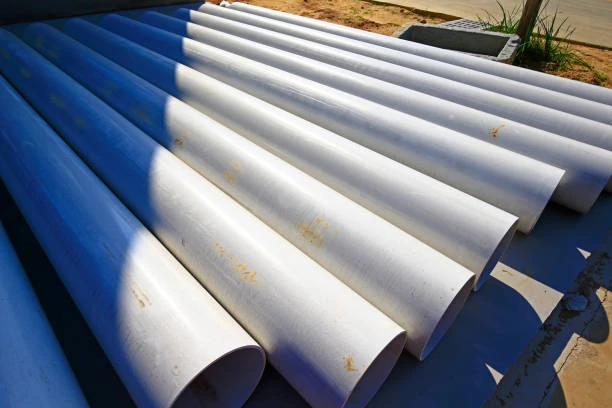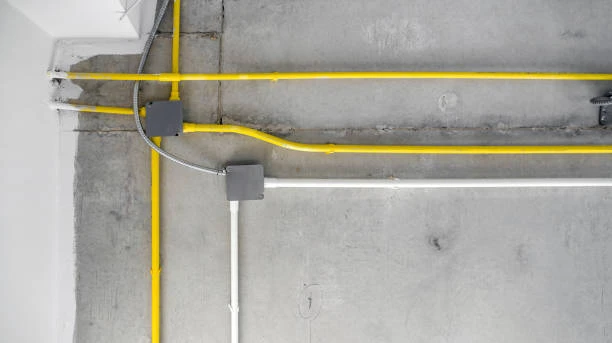A comprehensive life cycle study has reinforced the value of PVC pipe as a durable and cost-effective piping solution. The study highlights the advantages of PVC pipes in infrastructure, agriculture, and water management. Let’s explore why PVC pipes remain a preferred choice for modern projects.
PVC Pipe Demonstrates Long-Term Durability in the Study
The study confirms that PVC pipe lasts for decades under various environmental conditions. Its durability reduces the need for frequent repairs or replacements. This makes PVC pipe a cost-effective solution for long-term projects.
Life Cycle Study Validates the Sustainability of PVC Pipe
PVC pipe manufacturing uses fewer resources and generates less waste than many alternatives. The study highlights PVC pipe’s recyclability, making it an eco-friendly choice. This aligns with global sustainability goals and supports green infrastructure.
Water Management Applications
The study emphasizes PVC pipe’s efficiency in water systems. PVC pipe resists corrosion and maintains water quality over time. Municipalities rely on PVC pipes for clean and reliable water distribution.
Agricultural Efficiency
The study recognizes PVC pipe as a vital component in modern agriculture. Farmers use PVC pipe for durable and cost-effective irrigation systems. Its lightweight design allows easy installation, even in large-scale agricultural projects.
PVC Pipe Offers Cost Benefits in Infrastructure Projects
The study shows PVC pipe as a budget-friendly choice for infrastructure. Its low installation and maintenance costs benefit large and small projects. Contractors favor PVC pipe for its economic value and reliability.
Life Cycle Study Highlights the Versatility
The study showcases PVC pipe’s adaptability across industries. It is used in construction, agriculture, drainage, and telecommunications. This versatility makes PVC pipe an indispensable material for infrastructure.
PVC Pipe Resists Harsh Environmental Conditions
PVC pipe withstands extreme weather, chemical exposure, and high pressures. The study confirms its reliability in harsh environments. This makes PVC pipes ideal for industrial and outdoor applications.

PVC Pipe Outperforms Alternatives in Durability and Performance
The study compares PVC pipes with alternative materials like metal and concrete. PVC pipes outlasts and outperforms these materials in various applications. This reinforces its position as the preferred choice for many industries.
PVC Pipe Requires Minimal Maintenance Over Its Lifespan
The study emphasizes the significant advantages of PVC pipes in terms of low maintenance requirements, making it a highly cost-effective choice for various applications. PVC pipe’s resistance to corrosion, leaks, and wear ensures that it performs reliably over decades, even in challenging conditions. Unlike materials such as metal, which can rust or degrade over time, PVC pipes maintains its integrity without the need for frequent repairs or replacements. This durability significantly reduces operational costs for users, whether in municipal water systems, agricultural irrigation, or industrial applications.
Project managers and contractors value PVC pipes for its ability to minimize unexpected maintenance expenses. Its resilience to chemical exposure and environmental factors means fewer instances of damage, even when installed in harsh environments. For water management systems, PVC pipes ensures consistent water flow without disruptions caused by internal buildup or pipes failures. This reliability is particularly crucial for large-scale infrastructure projects where downtime or maintenance could result in significant financial and logistical challenges.
Additionally, PVC pipe’s lightweight design simplifies installation and reduces the strain on connections and joints over time. This further contributes to its low maintenance requirements, as fewer mechanical issues arise during its lifespan. The long-term savings generated by PVC pipes go beyond initial installation costs, benefiting municipalities, businesses, and homeowners alike.
By delivering dependable performance with minimal upkeep, PVC pipes proves to be an excellent investment for projects focused on efficiency, longevity, and cost control. This reliability, coupled with its affordable installation and operating costs, cements its position as a preferred material for modern infrastructure and utility systems.
Future Infrastructure Relies on the Benefits of PVC Pipe
The study suggests that PVC pipes will play a critical role in future infrastructure. As industries prioritize sustainability and cost-efficiency, PVC pipes meets these demands. Its proven track record makes it an essential material for modern projects.
FAQs
1. Why is PVC pipes considered sustainable?
PVC pipes is recyclable, requires fewer resources to produce, and lasts for decades, reducing environmental impact.
2. What industries use PVC pipes the most?
PVC pipes is widely used in water management, agriculture, construction, and telecommunications due to its versatility.
3. How does PVC pipes compare to alternative materials?
PVC pipes is more durable, lightweight, and cost-effective than metal, concrete, or other plastic piping solutions.
4. What are the main benefits of PVC pipes for agriculture?
PVC pipes provides durable, lightweight, and affordable irrigation systems, improving water distribution and agricultural efficiency.
5. How long does PVC pipes last in infrastructure projects?
PVC pipes can last over 50 years, making it one of the most durable materials for infrastructure applications.
This life cycle study highlights PVC pipes as a proven, versatile, and sustainable solution. Its reliability, cost-efficiency, and eco-friendliness ensure its continued dominance in the piping industry.

















